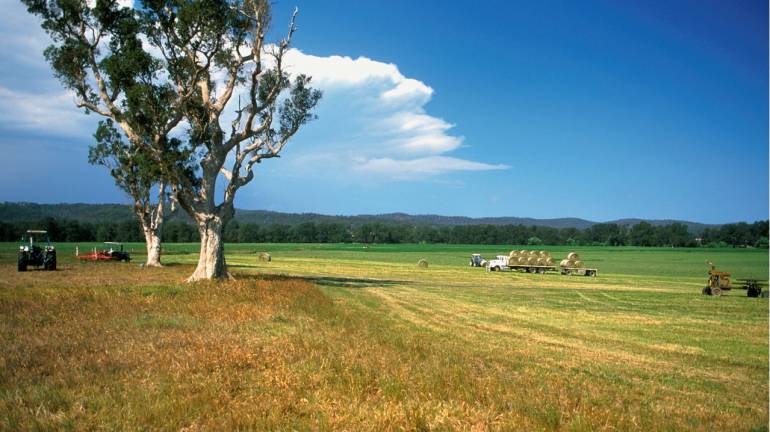Understanding legal norms while buying Agricultural land in India.
By Abhay Shah, Realty Quarter

The first phase to construct a house is the purchase of a piece of land. It is therefore essential to verify that the property has a definite, marketable name so that legal problems do not occur. In India, one has to verify that there are no conflicts or legal hazards when purchasing agricultural property and that the method of registration is free of problems. Procedures for the purchase of agriculture land differ from state to state.
In some states, such as Telangana, anybody can purchase agriculture land, whether they are farmers or not. However, only registered farmers or farming families can purchase agricultural land in other states, such as Karnataka. Therefore, before purchasing agricultural property, one should be conscious of the laws in the state.
Some of the points to be considered for purchasing agricultural land in India are given below.
1) Title deed:
The property’s title shows the names of the seller and also checks if the seller has an absolute right to sell the land. In order to check that the seller is not permitted to access another via this property, the original presented document and prior deeds should be examined by a lawyer. When more than one individual owns the property, it is essential to have a release certificate issued by the other respondents concerned, before registering the documents.
2) Agreement:
After each document has been verified, a written agreement is concluded concerning the price, advance payments and the real purchase date. A lawyer must make the agreement and both the parties and two witnesses must sign it.
3) Stamp duty on the land:
Stamp duties are government taxes and differ between states. A stamp duty paid is a legal instrument and can be accepted as proof in court.
4) Registration of the land:
The process of registration is to record a copy of a document and transfer titles to the registrar’s office on behalf of the buyer of the real estate. The deed should be registered at the office of the Sub-Registrar, within four months from the deadline the document is executed, as laid down in the Indian Registration Act 1908. This paper should contain details such as original title deeds, prior deeds, house tax receipts and two witnesses to register the property.
5) Sale deed of the land:
A sales deed is a document transferring the name from the seller to the buyer. In this document, you will find ownership of the property, location of the property and information such as measuring of the area, border information, etc.
6) Tax receipt and bills:
The customer should inspect the most recent tax bills for the property and can ask to municipal offices for the same. The buyer must also make sure that any notice or requests relating to the property are not outstanding. Water, electricity or any other bills, should be up to date.
7) Encumbrance certificate:
An encumbrance certificate for the last 13 or 30 years may be obtained from the office of the Sub-registrar to ensure that the land does not have legal obligations or complaints.
8) Purchasing land from NRI landowners:
A person who resides abroad can sell his land in India by authorizing a third party to sell his or her land on their behalf. In such cases, an officer in the Indian Embassy in his or her province should bear the witness and signature of the power of attorney.
Important guidelines to convert agricultural land into non-agricultural use:
1) Any development, which has to be undertaken in agricultural land, should take place only after converting the land into non-agricultural use.
2) An application form has to be submitted to the concerned authorities, clarifying the reason behind conversion.
3) The necessary documents like sale deed, tax paid receipt and mutation letter, have to be submitted with the application form, along with details like the dimensions and extent.
4) Depending on the property and locality, a fee should be paid for the land to be converted to non-agricultural purposes.
5) The authorized person, like the deputy commissioner or the collector, will permit conversion of the land if the necessary conditions have been met and no litigation is pending.
6) The land is declared non-agricultural land after it receives the official conversion certificate.





















































































I am lawyer in the Rajkot city of Gujrat and as well as impanel in the Nationalized Bank Such as , The Bank of India, The Central Bank of India & The Union Bank of India, India overseas Bank, Canara Bank.